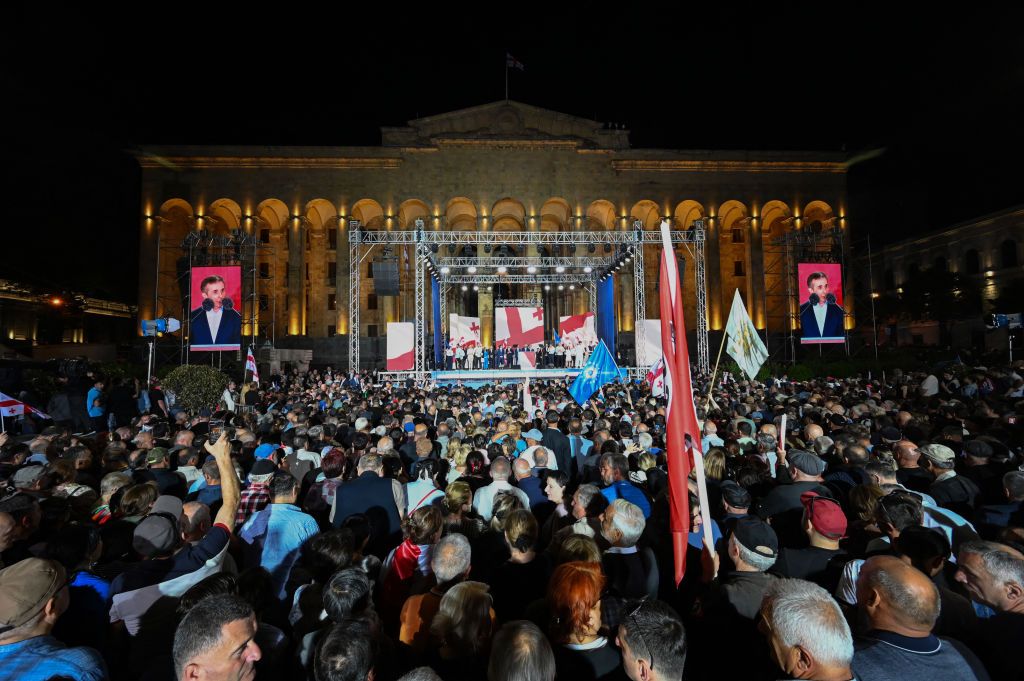Media: At least 8 injured in latest police crackdown on protests in Georgia

Georgian police again attacked protesters gathered by the parliament building in Tbilisi on the evening of May 1, injuring at least eight, authorities reported. The injuries were severe enough to require the hospitalization of the eight individuals, one of whom has already been discharged.
Tens of thousands of protesters gathered again the day after Georgian police violently attempted to disperse a demonstration in opposition to the controversial "foreign agents" law the ruling Georgian Dream party is attempting to pass.
Undeterred by the previous night's violence, protesters urged the parliament to abandon the law, which was ultimately approved by lawmakers in its second reading. It will require one more reading to be fully passed by the parliament.
Police escalated their violence toward the demonstrators, employing tear gas, water cannons, other chemical substances, and rubber bullets. Posts widely circulated on social media showed a protester who had been shot in the eye, likely with a rubber bullet, and another who was hit in the torso.
Health authorities also said that dozens of protesters were treated on the spot, most of whom had "headaches and burning eyes" resulting from the usage of tear gas.
Despite evidence from protesters of spent rubber bullet rounds, Deputy Interior Minister Aleksandre Darakhvelidze claimed that police did not use rubber bullets even though they had the "full legal basis" to do so. Darakhvelidze also said, without providing evidence, that protesters had used tear gas of an "unknown origin," which is not available for purchase.
Prime Minister Irakli Kobakhidze defended the use of force and placed the blame on the protesters, saying in a speech that "violence begets violence."
Kobakhidze said that "violent youth groups" were responsible for instigating the unrest, singling out Tbilisi Pride, Students for European Future, and a group the prime minister appeared to mistakenly refer to as "Genzi" (Gen Z), among others.
Human rights groups again denounced the police crackdown of the past two nights, saying in a joint statement that the "physical force used (against the protesters) was tantamount to torture."
The sentiment was echoed by European Commission President Ursula von der Leyen, who wrote on X that she was "following the situation in Georgia with great concern and condemn the violence on the streets of Tbilisi."










